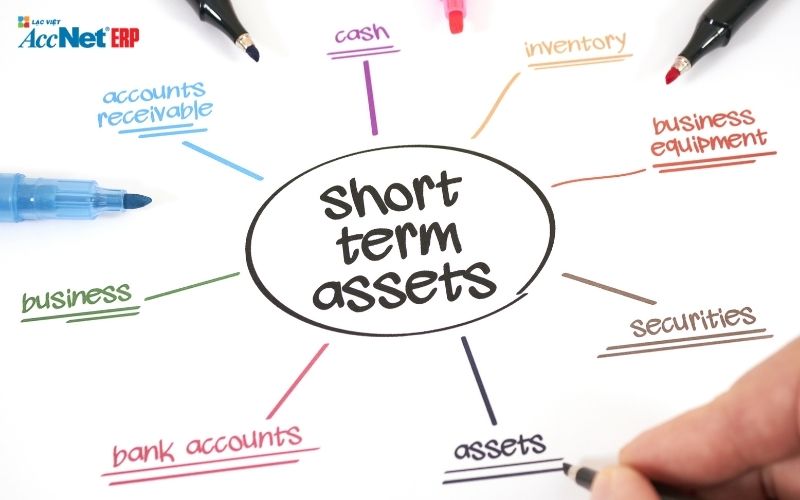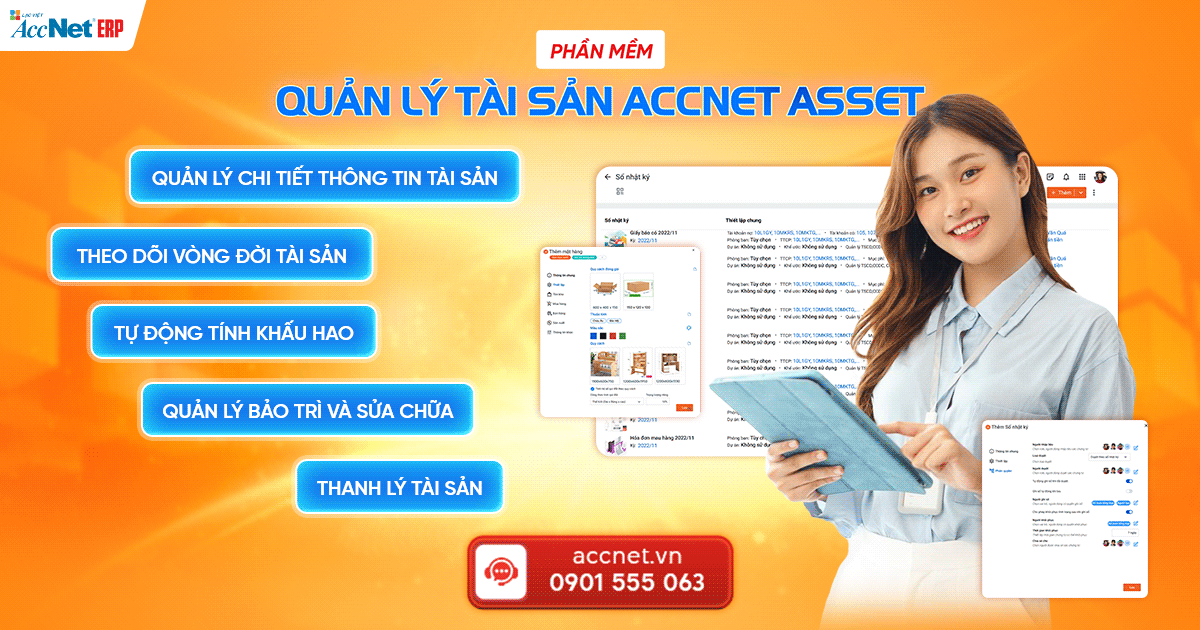In any business, fortune always plays a role is the foundation important to decide the existence and development. However, the property management is not merely recorded, listed that need to understand the nature, sorting properly. This is why other types of assets in accounting to become one of the content essential that businesses need to master in order to effective management of their resources. This article AccNet not only help you understand more clearly about the classification of property accounting, but also brings the practical solution to optimize the asset management business. Let's find out the details!
1. Assets in accounting what is it?
The types of assets in accounting is defined as economic resources that business control, have the ability to bring economic benefits in the future. According to the accounting Standards in Vietnam (VAS), the property includes the account value can be measured, under the control of the business.
- According to Standards international accounting (IFRS): the property not only is the physical tangible but also including intangible assets such as copyrights, trademarks, or management software.
- Summary: the property is the foundation for all production activities, business, investment of the business.

2. The types of assets in accounting
2.1. Classification of short-term assets
Short-term assets are those assets that are likely to convert into cash or used up in a business cycle (usually less than one year). This is a group of assets important to help businesses maintain liquidity, ensure the possibility of continuous operation.
The type of short-term assets in accounting common:
- Cash and cash equivalents: includes cash, bank deposits, other short-term investments that are easily converted into cash.
- Short-term investments: securities, investments have a maturity of under one year, bringing financial benefits quickly.
- Accounts receivable: Money, goods, services have not been paid from clients.
- Inventory: Raw materials, goods in process, production/completed but not yet sold.
- Prepaid expenses short-term: The account has already spent but will bring economic benefits in the short term, such as free office rental.
The role of short-term assets:
- Ensure steady cash flow for operations.
- To help businesses react quickly before the market fluctuations in the short term.
Read more:
- Bảng tổng hợp kiểm kê tài sản giúp lãnh đạo nắm tình hình thực tế nhanh chóng
- Biểu mẫu kê khai tài sản bổ sung giúp doanh nghiệp cập nhật số liệu chính xác
- Nghị định 130/2020/NĐ-CP về minh bạch tài sản thu nhập
2.2. The type of long-term assets in accounting
Long-term assets are the property has duration long-term use, bringing economic benefits and long term business. They are often related to the investments/assets in active service production business for many years.
The type of long-term assets downloads:
- Fixed assets: includes tangible assets (such as factories and machinery), intangible assets (such as copyrights, software management).
- Real estate investment: The real estate property is kept to increase the value, create a passive income from the rental.
- Long-term investments: investments in other companies, investment funds have a maturity greater than one year.
- Prepaid expenses long-term: For example, rental fees for office, long-term cost of software deployment.
- Other property: includes property not belonging to the group, such as the project unfinished.
The importance of the type of long-term assets in accounting:
- Is the foundation for the sustainable development of the enterprise.
- Support enhanced business competitiveness, to expand market share.
2.3. Types of intangible assets in accounting
Intangible assets are those assets that have no physical forms specific but bring great value to the business. Typical examples include:
- Software business management.
- Trademark, patent, copyright.
The role of intangible assets:
- Help business build trust with customers.
- Bring competitive advantage a monopoly on the market.
2.4. The types of tangible assets in accounting
Tangible assets are the assets specific material which business to own, use in business operations, such as machinery, equipment, means of transport.
Role in the production, operation:
- Tool is directly involved in the process of creating products/services.
- Create the basic platform for enterprises to deploy business strategies effectively.

Read more:
3. The optimal solution assets accounting for business
Business problems often encountered when managing the types of assets in accounting:
- Difficulties in classification of recorded asset accurate
- Errors in determining the value of property
- Lack of tool support, asset management efficiency
- No inventory of the property periodically

Phần mềm quản lý tài sản AccNet Asset là giải pháp toàn diện giúp doanh nghiệp tối ưu hóa quy trình kế toán tài sản. Những ưu điểm nổi bật bao gồm:
- Recorded, classified, property reports quickly and accurately.
- Update the status of assets in real-time.
SOFTWARE ACCNET ASSET – STOP WASTING ASSETS
- Cut reduction by 15-20% repair costs each year thanks to proper maintenance term
- 50% discount time inventory, and reporting of property
- Avoid losses hundreds of millions of since the property is "missing the mark", using the wrong purpose
- Increase asset life cycle up minimum 25% thanks to the tracking and timely warning
- Reduce errors depreciation – is not tax arrears
A business average savings from 300 to 500 million/year after deployment AccNet Asset

SIGN UP CONSULTATION AND DEMO TODAY
Việc hiểu rõ, quản lý tốt các loại tài sản trong kế toán chính là nguồn lực quan trọng quyết định đến sự phát triển, thành công của mọi doanh nghiệp. Đừng để việc quản lý tài sản trở thành gánh nặng! Hãy áp dụng các giải pháp như phần mềm AccNet Asset. Hãy liên hệ ngay hôm nay để được tư vấn!
CONTACT INFORMATION:- ACCOUNTING SOLUTIONS COMPREHENSIVE ACCNET
- 🏢 Head office: 23 Nguyen Thi huynh, Ward 8, Phu Nhuan District, ho chi minh CITY.CITY
- ☎️ Hotline: 0901 555 063
- 📧 Email: accnet@lacviet.com.vn
- 🌐 Website: https://accnet.vn/

Theme: